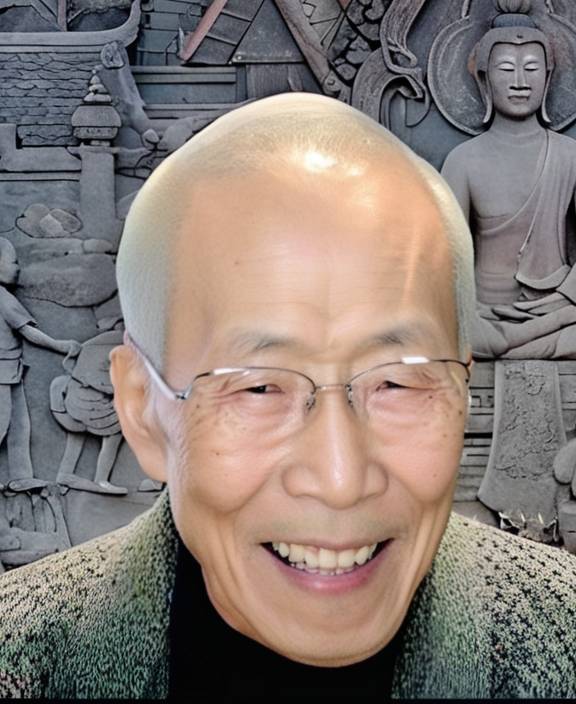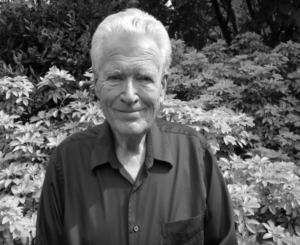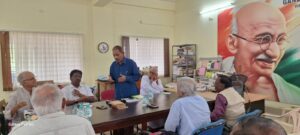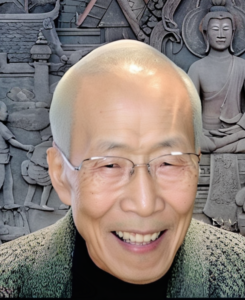We’re excited to continue building our educational offerings on free and liberal religion, interfaith studies, and spiritual practices. Join us for transformative learning experiences that explore diverse spiritual traditions and contemporary religious thought.
All sessions will be added to our events calendar at https://iarf.net/events.
All Institute materials are available to IARF members registered in the IARF Network. If you don’t have an account yet, you can set it up for free. Recordings and materials from previous sessions are available to registered members through our e-learning platform. For more information about the Institute and its mission, please visit our Free Religion Institute page.
Course Orientation
Overview of Courses & Introduction to George Williams’ Interfaith Dialogue Series
Join us for an introductory session covering all upcoming courses in our educational series. This orientation will provide a special introduction to George Williams’ comprehensive Interfaith Dialogue series launching this year, and offer you an opportunity to speak directly with George about the Institute’s mission and educational approach. This session will help you understand what to expect and how to make the most of your learning experience.
8:00 AM HST: UTC: 6:00 PM (previous day) • San Francisco: 11:00 AM • Boston: 2:00 PM • London: 7:00 PM • Amsterdam: 8:00 PM • Tokyo: 3:00 AM (+1 day)
7:00 PM HST: UTC: 5:00 AM (+1 day) • San Francisco: 10:00 PM • Boston: 1:00 AM (+1 day) • London: 6:00 AM (+1 day) • Amsterdam: 7:00 AM (+1 day) • Tokyo: 2:00 PM (+1 day)
Scheduled Courses & Sessions
Imaoka Shinichiro and Free Religion
Course Enrollment Required
To attend Andrew Brown’s course sessions, please enroll at https://iarf.net/free-religion-institute/all-courses/
Free and accessible to all members of IARF member organisations, chapters and individual members. Website registration required.
Description
This course explores the extraordinary life and thought of Imaoka Shin’ichirō (1881-1988), whose 106-year journey through multiple religious traditions led to a profound vision of “jiyū shūkyō” (free-religion). Rather than a new denomination or an attempt to unite existing religions, free-religion represents a creative, inquiring approach to spirituality that recognizes no single tradition has a monopoly on truth.
The course traces Imaoka’s remarkable spiritual evolution: from his Pure Land Buddhist family roots, through his conversion to Anglican Christianity, his work with the Congregational Church, and his eventual role in the Japanese Unitarian movement. We explore how his encounters with diverse traditions – including Tenko Nishida’s non-sectarian Ittōen community, Seiza meditation, and Shinto spirituality – shaped his understanding that any established religion could become “free religion” if approached with humility and openness to learning from others.
We examine Imaoka’s “Principles of Living” and Statements of Faith, which reveal how free-religion extends beyond organized religion into politics, economy, and science when these manifest genuine human nature. We explore his vision of the Tokyo Kiitsu Kyōkai (Unity Fellowship) as a gathering place for practitioners of free-religion, and his hope that the International Association for Religious Freedom would evolve into an international association of free religions.
Through the course, we see how Imaoka’s thought transcended traditional religious boundaries while deeply engaging with each tradition he encountered. His approach offers valuable insights for contemporary interfaith dialogue and religious innovation, suggesting ways that individuals and communities can maintain deep connections to their traditions while remaining open to continuous growth and learning – as expressed in his famous saying, “There is no graduation from the University of Life.”
The course includes rare photographs and documents from Imaoka’s life and work, including images of Unity Hall and the Tokyo Kiitsu Kyōkai. Japanese speakers are especially welcome to contribute to ongoing efforts to improve English translations of Imaoka’s essays. Participants interested in Seiza meditation practice, which formed the cornerstone of Imaoka’s spiritual discipline, will have the opportunity to learn more about this practice.
8:00 AM BST converts to: UTC: 7:00 AM • San Francisco: 12:00 AM • Boston: 3:00 AM • Amsterdam: 9:00 AM • Tokyo: 4:00 PM

Rev. Andrew Brown
Buddhism and Free Religion
10:00 AM JST converts to: UTC: 1:00 AM • San Francisco: 6:00 PM (previous day) • Boston: 9:00 PM (previous day) • London: 2:00 AM • Amsterdam: 3:00 AM

Rev. Michinori Maruta
Interfaith Dialogue Series by George Williams
Course Enrollment Required
To attend George Williams’ course sessions, please enroll at https://iarf.net/free-religion-institute/all-courses/
Free and accessible to all members of IARF member organisations, chapters and individual members. Website registration required.
Description
After the 1893 World’s Parliament of Religions, many groups were formed to continue interfaith dialogue. Sadly, most faded away after a few years. In 1900 our IARF began more as an intra-faith organization. Intra- instead of inter-faith means that religions of the same tradition attempted to talk and cooperate together. Our slow evolution into the oldest interfaith organization can now be celebrated in its 125th anniversary year.
Why Interfaith Dialogue Matters
Why do we think interfaith dialogue is so important?
First, “Know Thyself.” Do you know your Spiritual Path’s way of experiencing the Holy, the Sacred? Do you know how you know? That may seem odd, but neurophysiology reduces ways of knowing to four, combining eighty-plus sub-systems of neurological input into our conscious and unconscious perceptions of our being alive. Are we aware of what we don’t know?
We learn about the Other, not as an object (an It) but as another conscious and independent being (a Thou, as Martin Buber, the Jewish mystic, taught us). We learn by studying and listening.
We learn the key words that convey the basic teaching (concepts) of each religious tradition and practice. That is only 20 to 50 technical terms to add to our vocabulary. The more difficult the word is to translate into our mother-tongue (our birth language), the more we know that this term contains a concept that our culture’s language(s) do not understand. So it is time to study and learn that in interfaith dialogue.
Learning from Shin’ichirō Imaoka
Our inspiration to study in preparation for interfaith dialogue and cooperation came from Shin’ichirō Imaoka, a multi-faith centenarian, who taught that we learn and grow as we come to understand our differences and appreciate our similar goals and purposes. His vision was Life as a University, learning as a lifetime journey.
So it is in his honor that the Institute for the Study of Free-Religion offers courses in interfaith dialogue, understanding each other’s faiths and practices, how our traditions help us through life’s existential crises and even turning them into times of transformation, and how our own spiritual lives are deeply influenced by our dominant psychological and thinking functions.
The Human Paradox
It is this biological quirk that makes our species both spiritual and demonic. We are social beings (or herd animals), small in comparison to the species we have eliminated or dominate, aggressive to a fault, carnivorous unless self-disciplined, inferior in all of our five major senses, deceitful, addictive, and so on ad infinitum. Yet, our sacred wisdom traditions give us hope that, despite all these flaws, we can become humane, manifest a Buddha or Christ nature, walk the Path or the Middle Way.
We can boldly say: without religious and spiritual teachings and practices that liberate our species from its biological and social trajectories, there would be no hope for peace on earth.
In IARF we think study, practice, service and wise action will combine to help us in our faith traditions to make this a better world, enrich our lives, adding inner meaning and outer accomplishments. Together we join in classes as we plan new ways to serve.
Learning the Basics about Study of Religion
America/Europe Session: 8:00 AM HST (UTC: 6:00 PM previous day • London: 7:00 PM • Amsterdam: 8:00 PM • Boston: 2:00 PM • San Francisco: 11:00 AM)
Asia/Pacific Session: 7:00 PM HST (UTC: 5:00 AM +1 day • Tokyo: 2:00 PM +1 day • New Delhi: 10:30 AM +1 day • San Francisco: 10:00 PM • London: 6:00 AM +1 day)
Learning the Basics of Asian Religions
America/Europe Session: 8:00 AM HST (UTC: 6:00 PM previous day • London: 7:00 PM • Amsterdam: 8:00 PM • Boston: 2:00 PM • San Francisco: 11:00 AM)
Asia/Pacific Session: 7:00 PM HST (UTC: 5:00 AM +1 day • Tokyo: 2:00 PM +1 day • New Delhi: 10:30 AM +1 day • San Francisco: 10:00 PM • London: 6:00 AM +1 day)
America/Europe Session: 8:00 AM HST (UTC: 6:00 PM previous day • London: 7:00 PM • Amsterdam: 8:00 PM • Boston: 2:00 PM • San Francisco: 11:00 AM)
Asia/Pacific Session: 7:00 PM HST (UTC: 5:00 AM +1 day • Tokyo: 2:00 PM +1 day • New Delhi: 10:30 AM +1 day • San Francisco: 10:00 PM • London: 6:00 AM +1 day)
America/Europe Session: 8:00 AM HST (UTC: 6:00 PM previous day • London: 7:00 PM • Amsterdam: 8:00 PM • Boston: 2:00 PM • San Francisco: 11:00 AM)
Asia/Pacific Session: 7:00 PM HST (UTC: 5:00 AM +1 day • Tokyo: 2:00 PM +1 day • New Delhi: 10:30 AM +1 day • San Francisco: 10:00 PM • London: 6:00 AM +1 day)
America/Europe Session: 8:00 AM HST (UTC: 6:00 PM previous day • London: 7:00 PM • Amsterdam: 8:00 PM • Boston: 2:00 PM • San Francisco: 11:00 AM)
Asia/Pacific Session: 7:00 PM HST (UTC: 5:00 AM +1 day • Tokyo: 2:00 PM +1 day • New Delhi: 10:30 AM +1 day • San Francisco: 10:00 PM • London: 6:00 AM +1 day)
America/Europe Session: 8:00 AM HST (UTC: 6:00 PM previous day • London: 7:00 PM • Amsterdam: 8:00 PM • Boston: 2:00 PM • San Francisco: 11:00 AM)
Asia/Pacific Session: 7:00 PM HST (UTC: 5:00 AM +1 day • Tokyo: 2:00 PM +1 day • New Delhi: 10:30 AM +1 day • San Francisco: 10:00 PM • London: 6:00 AM +1 day)
America/Europe Session: 8:00 AM HST (UTC: 6:00 PM previous day • London: 7:00 PM • Amsterdam: 8:00 PM • Boston: 2:00 PM • San Francisco: 11:00 AM)
Asia/Pacific Session: 7:00 PM HST (UTC: 5:00 AM +1 day • Tokyo: 2:00 PM +1 day • New Delhi: 10:30 AM +1 day • San Francisco: 10:00 PM • London: 6:00 AM +1 day)
America/Europe Session: 8:00 AM HST (UTC: 6:00 PM previous day • London: 7:00 PM • Amsterdam: 8:00 PM • Boston: 2:00 PM • San Francisco: 11:00 AM)
Asia/Pacific Session: 7:00 PM HST (UTC: 5:00 AM +1 day • Tokyo: 2:00 PM +1 day • New Delhi: 10:30 AM +1 day • San Francisco: 10:00 PM • London: 6:00 AM +1 day)
America/Europe Session: 8:00 AM HST (UTC: 6:00 PM previous day • London: 7:00 PM • Amsterdam: 8:00 PM • Boston: 2:00 PM • San Francisco: 11:00 AM)
Asia/Pacific Session: 7:00 PM HST (UTC: 5:00 AM +1 day • Tokyo: 2:00 PM +1 day • New Delhi: 10:30 AM +1 day • San Francisco: 10:00 PM • London: 6:00 AM +1 day)
America/Europe Session: 8:00 AM HST (UTC: 6:00 PM previous day • London: 7:00 PM • Amsterdam: 8:00 PM • Boston: 2:00 PM • San Francisco: 11:00 AM)
Asia/Pacific Session: 7:00 PM HST (UTC: 5:00 AM +1 day • Tokyo: 2:00 PM +1 day • New Delhi: 10:30 AM +1 day • San Francisco: 10:00 PM • London: 6:00 AM +1 day)
America/Europe Session: 8:00 AM HST (UTC: 6:00 PM previous day • London: 7:00 PM • Amsterdam: 8:00 PM • Boston: 2:00 PM • San Francisco: 11:00 AM)
Asia/Pacific Session: 7:00 PM HST (UTC: 5:00 AM +1 day • Tokyo: 2:00 PM +1 day • New Delhi: 10:30 AM +1 day • San Francisco: 10:00 PM • London: 6:00 AM +1 day)
Four Spiritual Paths & their Practice
America/Europe Session: 8:00 AM HST (UTC: 6:00 PM previous day • London: 7:00 PM • Amsterdam: 8:00 PM • Boston: 2:00 PM • San Francisco: 11:00 AM)
Asia/Pacific Session: 7:00 PM HST (UTC: 5:00 AM +1 day • Tokyo: 2:00 PM +1 day • New Delhi: 10:30 AM +1 day • San Francisco: 10:00 PM • London: 6:00 AM +1 day)
America/Europe Session: 8:00 AM HST (UTC: 6:00 PM previous day • London: 7:00 PM • Amsterdam: 8:00 PM • Boston: 2:00 PM • San Francisco: 11:00 AM)
Asia/Pacific Session: 7:00 PM HST (UTC: 5:00 AM +1 day • Tokyo: 2:00 PM +1 day • New Delhi: 10:30 AM +1 day • San Francisco: 10:00 PM • London: 6:00 AM +1 day)
America/Europe Session: 8:00 AM HST (UTC: 6:00 PM previous day • London: 7:00 PM • Amsterdam: 8:00 PM • Boston: 2:00 PM • San Francisco: 11:00 AM)
Asia/Pacific Session: 7:00 PM HST (UTC: 5:00 AM +1 day • Tokyo: 2:00 PM +1 day • New Delhi: 10:30 AM +1 day • San Francisco: 10:00 PM • London: 6:00 AM +1 day)
America/Europe Session: 8:00 AM HST (UTC: 6:00 PM previous day • London: 7:00 PM • Amsterdam: 8:00 PM • Boston: 2:00 PM • San Francisco: 11:00 AM)
Asia/Pacific Session: 7:00 PM HST (UTC: 5:00 AM +1 day • Tokyo: 2:00 PM +1 day • New Delhi: 10:30 AM +1 day • San Francisco: 10:00 PM • London: 6:00 AM +1 day)
America/Europe Session: 8:00 AM HST (UTC: 6:00 PM previous day • London: 7:00 PM • Amsterdam: 8:00 PM • Boston: 2:00 PM • San Francisco: 11:00 AM)
Asia/Pacific Session: 7:00 PM HST (UTC: 5:00 AM +1 day • Tokyo: 2:00 PM +1 day • New Delhi: 10:30 AM +1 day • San Francisco: 10:00 PM • London: 6:00 AM +1 day)
Life’s Existential Crises or Opportunities
America/Europe Session: 8:00 AM HST (UTC: 6:00 PM previous day • London: 7:00 PM • Amsterdam: 8:00 PM • Boston: 2:00 PM • San Francisco: 11:00 AM)
Asia/Pacific Session: 7:00 PM HST (UTC: 5:00 AM +1 day • Tokyo: 2:00 PM +1 day • New Delhi: 10:30 AM +1 day • San Francisco: 10:00 PM • London: 6:00 AM +1 day)
America/Europe Session: 8:00 AM HST (UTC: 6:00 PM previous day • London: 7:00 PM • Amsterdam: 8:00 PM • Boston: 2:00 PM • San Francisco: 11:00 AM)
Asia/Pacific Session: 7:00 PM HST (UTC: 5:00 AM +1 day • Tokyo: 2:00 PM +1 day • New Delhi: 10:30 AM +1 day • San Francisco: 10:00 PM • London: 6:00 AM +1 day)
America/Europe Session: 8:00 AM HST (UTC: 6:00 PM previous day • London: 7:00 PM • Amsterdam: 8:00 PM • Boston: 2:00 PM • San Francisco: 11:00 AM)
Asia/Pacific Session: 7:00 PM HST (UTC: 5:00 AM +1 day • Tokyo: 2:00 PM +1 day • New Delhi: 10:30 AM +1 day • San Francisco: 10:00 PM • London: 6:00 AM +1 day)
America/Europe Session: 8:00 AM HST (UTC: 6:00 PM previous day • London: 7:00 PM • Amsterdam: 8:00 PM • Boston: 2:00 PM • San Francisco: 11:00 AM)
Asia/Pacific Session: 7:00 PM HST (UTC: 5:00 AM +1 day • Tokyo: 2:00 PM +1 day • New Delhi: 10:30 AM +1 day • San Francisco: 10:00 PM • London: 6:00 AM +1 day)
George Williams
Upcoming Courses
Coming in September: Interfaith Dialogue: Learning the Basics of Western Religions (Part of George Williams’ continuing series)
The German Free Religious Tradition
A deep dive into the German free religious tradition by Rev. Pascal Schilling.
Religious Freedom as a Human Right
A comprehensive introduction to Religious Freedom as a Human Right, a course by Luke Liniewicz, LLM.
Free Christianity
Explore the tenets and history of Free Christianity with Kurt Bangert.
Death & Dying
Explore philosophical and spiritual perspectives on death and dying with Prof. Michel Mohr.
Pagan Faith & Practice
An introduction to Pagan faith traditions and practices with Morgana Sythove.
Hawaiian Faith & Practice
Discover traditional Hawaiian spiritual beliefs and practices with Kumu Glen Kila.





